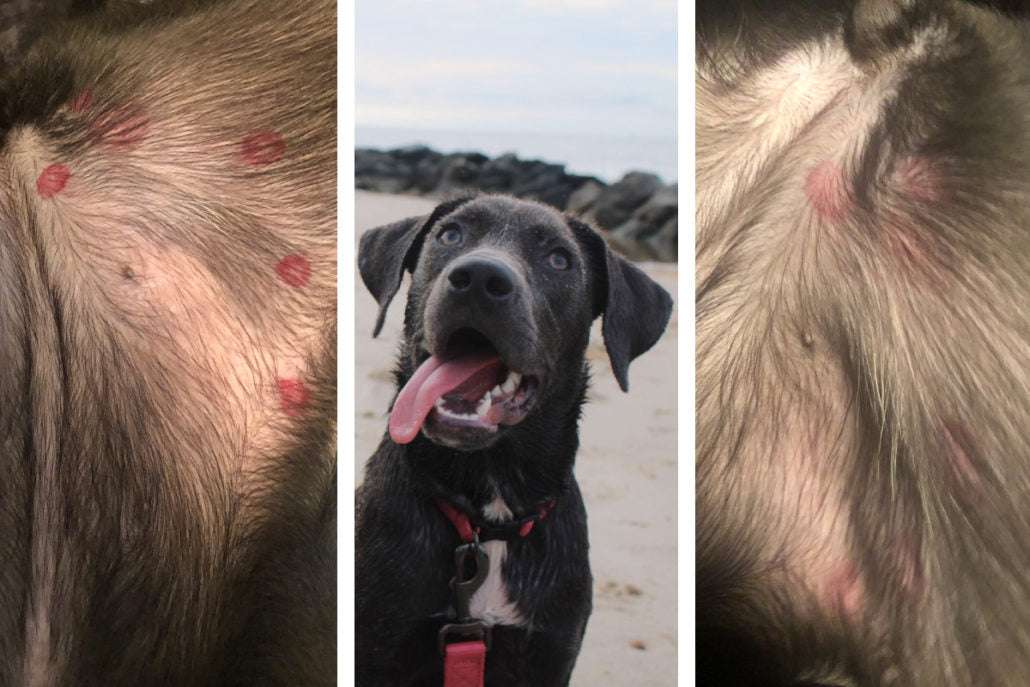Key Takeaways:
- Bed bugs can infest a pet's bedding and fur, making them carriers of the pests.
- Pets can bring bed bugs into your home if they have been in an infested area.
- Regularly inspecting your pet for signs of bed bugs, such as bites or eggs, is important for early detection.
- Treating your pet for bed bugs may involve using specialized shampoos or medications recommended by a veterinarian.
- Preventing bed bug infestations in pets can be achieved by regularly washing their bedding and vacuuming their living areas.
Are you a pet owner who loves cuddling up with your furry friend? If so, then you need to pay attention to this important topic: Can your pet get bed bugs? While it may not be the most pleasant subject to think about, understanding the risks and implications of bed bugs on our beloved pets is essential for their well-being. In fact, did you know that according to recent studies, 20% of pest professionals have encountered infestations in pet beds or toys? This means that our pets are not immune to these pesky insects. So, let's delve into this topic and discover how we can protect our four-legged companions from these unwelcome guests. Get ready to uncover the secrets of keeping your pets safe and cozy!
What are bed bugs and why should pet owners be concerned?
Bed bugs are small, flat insects that feed on the blood of animals and humans. They are reddish-brown in color and can be found in bedding, furniture, and cracks in walls. Bed bugs can cause a lot of problems for both humans and pets. They can bite, causing itchy red welts on the skin. In severe cases, they can even lead to allergic reactions.
Pet owners should be concerned about bed bugs because these pests can easily infest their pet's bedding or sleeping areas. Once bed bugs are present in a home, they can quickly multiply and spread throughout the house. This means that not only will your pet be at risk of getting bitten by bed bugs, but you may also have to deal with an infestation that affects your entire family.
Can pets get bed bugs from their bedding or sleeping areas?
Yes, pets can definitely get bed bugs from their bedding or sleeping areas. Bed bugs are excellent hitchhikers and can easily crawl onto your pet's fur or hide in their bedding. If your pet sleeps in the same room as you or spends time on furniture where bed bugs are present, there is a high chance they will bring these pests into their sleeping area.
In addition to bringing bed bugs into their bedding, pets can also transport them to other parts of the house. Bed bugs can attach themselves to your pet's fur and then drop off in different locations as your pet moves around. This makes it important to not only treat your pet's sleeping area but also thoroughly clean other areas of the house where they spend time.
How do bed bugs affect the health and well-being of pets?
Bed bug bites can cause discomfort for pets. Just like humans, pets can experience itching and irritation from bed bug bites. They may scratch excessively, leading to skin infections or hot spots. In severe cases, pets can develop an allergic reaction to the bed bug saliva, which can cause more serious health issues.
It's also important to note that the stress of dealing with a bed bug infestation can take a toll on your pet's overall well-being. The constant itching and discomfort can lead to anxiety and behavioral changes. Additionally, if your pet is constantly scratching and biting at their skin, it can result in hair loss and secondary infections.
What signs or symptoms indicate that a pet may have bed bugs?
It can be challenging to determine if your pet has bed bugs since they are small and difficult to spot. However, there are some signs you can look out for:
- If you notice your pet scratching excessively or biting at their skin, it could be a sign of bed bug bites.
- Finding small red welts or bumps on your pet's skin.
- Black or dark brown spots on your pet's bedding or sleeping area, which could be bed bug feces.
- Finding live bed bugs crawling on your pet's fur or in their bedding.
Steps to prevent pets from getting bed bugs
To prevent pets from getting bed bugs, follow these steps:
- Regularly wash and clean your pet's bedding using hot water and high heat drying.
- Vacuum your home regularly, paying close attention to areas where your pet spends time.
- If you suspect a bed bug infestation in your home, contact a professional pest control company for proper treatment.
- Inspect your pet's fur and bedding regularly for any signs of bed bugs.
- Avoid bringing used furniture or bedding into your home without thoroughly inspecting it for bed bugs.
What should pet owners do if their pet gets bed bugs?
If you suspect that your pet has bed bugs, it is important to take action promptly:
- Isolate your pet's bedding and wash it in hot water with a high heat drying cycle to kill any bed bugs.
- Thoroughly vacuum the areas where your pet spends time, including furniture and carpets.
- Contact your veterinarian for guidance on treating any skin irritations or infections caused by bed bug bites.
- Consider contacting a professional pest control company to treat your home and eliminate the bed bug infestation.
Preventing humans from catching bed bugs from pets
To prevent humans from catching bed bugs from pets, follow these precautions:
- Avoid direct contact with areas where you suspect there may be bed bugs, such as your pet's bedding or sleeping area.
- Regularly wash and clean your own bedding using hot water and high heat drying.
- Vacuum your home frequently, paying close attention to areas where your pet spends time.
- If you notice any signs of a bed bug infestation in your home, contact a professional pest control company for proper treatment.
In conclusion, while it is possible for your pet to get bed bugs, it is not very common. Taking preventive measures like regularly cleaning their bedding and inspecting their fur can help keep them safe from these pests. If you suspect your pet has bed bugs, it's best to consult a veterinarian for proper treatment.
Can bed bugs live on my pets?
A: Although bed bugs do not reside on pets or spend as much time on them as other common pests like fleas, ticks, lice, and mites, they are still capable of biting your pets.
How do you know if your pet has bed bugs?
In addition to looking for bed bug bites on your pet, be sure to check for any staining around their bedding. These stains could be dried blood from the bites or darker spots, which could indicate bed bug feces. Another sign to be aware of is finding shed exoskeletons around your pet's bedding, as this is another indication of bed bugs.
Can bed bugs live in your hair?
It is very unlikely that you will find a bedbug in your hair because they prefer to hide away from their host. While it is possible for a bedbug to accidentally end up on your scalp while you're sleeping, it is highly unlikely that it would choose to live there.
Do bed bugs lay eggs on pets?
You can be confident that your pet is not at risk of bed bug infestation because bed bugs do not lay their eggs on their hosts, including pets.
How long do bed bugs stay on pets?
Unlike fleas, bed bugs do not live on animals. They are typically found in the environment and only come out at night to feed. Therefore, it is uncommon for pets to carry bed bugs. Just like protecting yourself and your home, keeping pets safe from bed bugs involves being vigilant and maintaining good hygiene practices.
Do bed bugs stay on your body?
Bed bugs do not live on the skin but prefer to feed on open areas of the skin. After feeding, they swell up to almost three times their normal size, which makes it impossible for them to survive on a human body or hide discreetly. Therefore, bed bugs cannot live on your body.

















